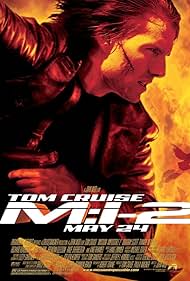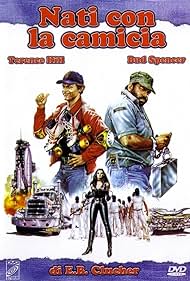À l'Ouest rien de nouveau Bande sonore (1930)

Acheter sur Amazon Jouer et télécharger des bandes sonores
All Quiet on the Western Front
Sin novedad en el frente
All'ovest niente di nuovo
A Oeste Nada de Novo
All Quiet on the Western Front
Synopsis
Professor Kantorek gives an impassioned speech about the glory of serving in the Army and "saving the Fatherland". On the brink of becoming men, the boys in his class, led by Paul Bäumer, are moved to join the army as the new 2nd Company. Their romantic delusions are quickly broken during their brief but rigorous training under the abusive Corporal Himmelstoss, who bluntly informs them, "You're going to be soldiers-and that's all."
The new soldiers arrive by train at the combat zone, which is mayhem, with soldiers everywhere, incoming shells, horse-drawn wagons racing about, and prolonged rain. One in the group is killed before the recruits can reach their post, to the alarm of one of the new soldiers (Behn). The new soldiers are assigned to a unit composed of older soldiers, who are not exactly accommodating.
The young soldiers find that there is no food available at the moment. They have not eaten since breakfast, but the men they have joined have not had food for two days. One of them, "Kat" Katczinsky, had gone to locate something to eat, and he returns with a slaughtered hog he has stolen from a field kitchen. The young soldiers "pay" for their dinner with soaps and cigarettes.
The recruits' first trip to the trenches with the veterans, to re-string barbed wire, is a harrowing experience, especially when Behn is blinded by shrapnel and hysterically runs into machine-gun fire. After spending several days in a bunker under bombardment, they finally move into the trenches and successfully repulse an enemy attack; they then counterattack and take an enemy trench with heavy casualties but have to abandon it. They are sent back to the field kitchens to get their rations; each man receives double helpings, simply because of the number of dead.
They hear that they are to return to the front the next day and begin a semi-serious discussion about the causes of the war and of wars in general. They speculate about whether geographical entities offend each other and whether these disagreements involve them. Tjaden speaks familiarly about himself and the Kaiser; Kat jokes that instead of having a war, the leaders of Europe should be stripped to their underwear and made to "fight it out with clubs".
One day, Corporal Himmelstoss arrives at the front and is immediately spurned because of his bad reputation. He is forced to go over the top with the 2nd Company and is promptly killed. In an attack on a cemetery, Paul stabs a French soldier but finds himself trapped in a hole with the dying man for an entire night. He desperately tries to help him throughout the night, bringing him water but fails to stop him from dying. He cries bitterly and begs the dead body to speak so he can be forgiven. Later, he returns to the German lines and is comforted by Kat.
Going back to the front line, Paul is severely wounded and taken to a Catholic hospital, along with his good friend Albert Kropp. Kropp's leg is amputated, but he does not find out until some time afterward. Around this time, Paul is taken to the bandaging ward, from which, according to its reputation, nobody has ever returned alive. Still, he later returns to the normal rooms triumphantly, only to find Kropp in depression.
Paul is given a furlough and visits his family at home. He is shocked by how uninformed everyone is about the war's actual situation; everyone is convinced that a final "push for Paris" is soon to occur. When Paul visits the schoolroom where he was originally recruited, he finds Professor Kantorek prattling the same patriotic fervor to a class of even younger students. Professor Kantorek asks Paul to detail his experience, at which the latter reveals that war was not at all like he had envisioned and mentions the deaths of his partners.
This revelation upsets the professor, as well as the young students who promptly call Paul a "coward". Disillusioned and angry, Paul returns to the front and comes upon another 2nd Company filled with new young recruits who are now disillusioned; he is then happily greeted by Tjaden. He goes to find Kat, and they discuss the people's inability to comprehend the futility of the war. Kat's shin is broken when a bomb dropped by an aircraft falls nearby, so Paul carries him back to a field hospital, only to find that a second explosion has killed Kat. Crushed by the loss of his mentor, Paul leaves.
In the final scene, Paul is back on the front line. He sees a butterfly just beyond his trench. Smiling, he reaches out for the butterfly. While reaching, however, he is shot and killed by an enemy sniper. The final sequence shows the 2nd Company arriving at the front for the first time, fading out to the image of a cemetery.
Télécharger et écouter la liste de la bande sonore
| Jouer | Titre | Artiste |
|---|---|---|
|
À l'Ouest rien de nouveau
|
||
|
Remains
|
Volker Bertelmann:
Interprète
|
|
|
Uniform
|
Volker Bertelmann:
Interprète
|
|
|
Rain & Night
|
Volker Bertelmann:
Interprète
|
|
|
Flares
|
Volker Bertelmann:
Interprète
|
|
|
Buried & Found
|
Volker Bertelmann:
Interprète
|
|
|
Dog Tags
|
Volker Bertelmann:
Interprète
|
|
|
Ludwig
|
Volker Bertelmann:
Interprète
|
|
|
Comrades
|
Volker Bertelmann:
Interprète
|
|
|
Search Party
|
Volker Bertelmann:
Interprète
|
|
|
72 Hours
|
Volker Bertelmann:
Interprète
|
|
|
Tanks
|
Volker Bertelmann:
Interprète
|
|
|
War Machines
|
Volker Bertelmann:
Interprète
|
|
|
Retreat
|
Volker Bertelmann:
Interprète
|
|
|
Bomb Crater
|
Volker Bertelmann:
Interprète
|
|
|
Night Fires
|
Volker Bertelmann:
Interprète
|
|
|
Scarf
|
Volker Bertelmann:
Interprète
|
|
|
Tjaden
|
Volker Bertelmann:
Interprète
|
|
|
Fear of What is Coming
|
Volker Bertelmann:
Interprète
|
|
|
Kat
|
Volker Bertelmann:
Interprète
|
|
|
No End
|
Volker Bertelmann:
Interprète
|
|
|
Last Combat
|
Volker Bertelmann:
Interprète
|
|
|
Making Sense of War
|
Volker Bertelmann:
Interprète
|
|
|
All Quiet On the Western Front
|
Volker Bertelmann:
Interprète
|
|
|
Paul
|
Volker Bertelmann:
Interprète
|
|













